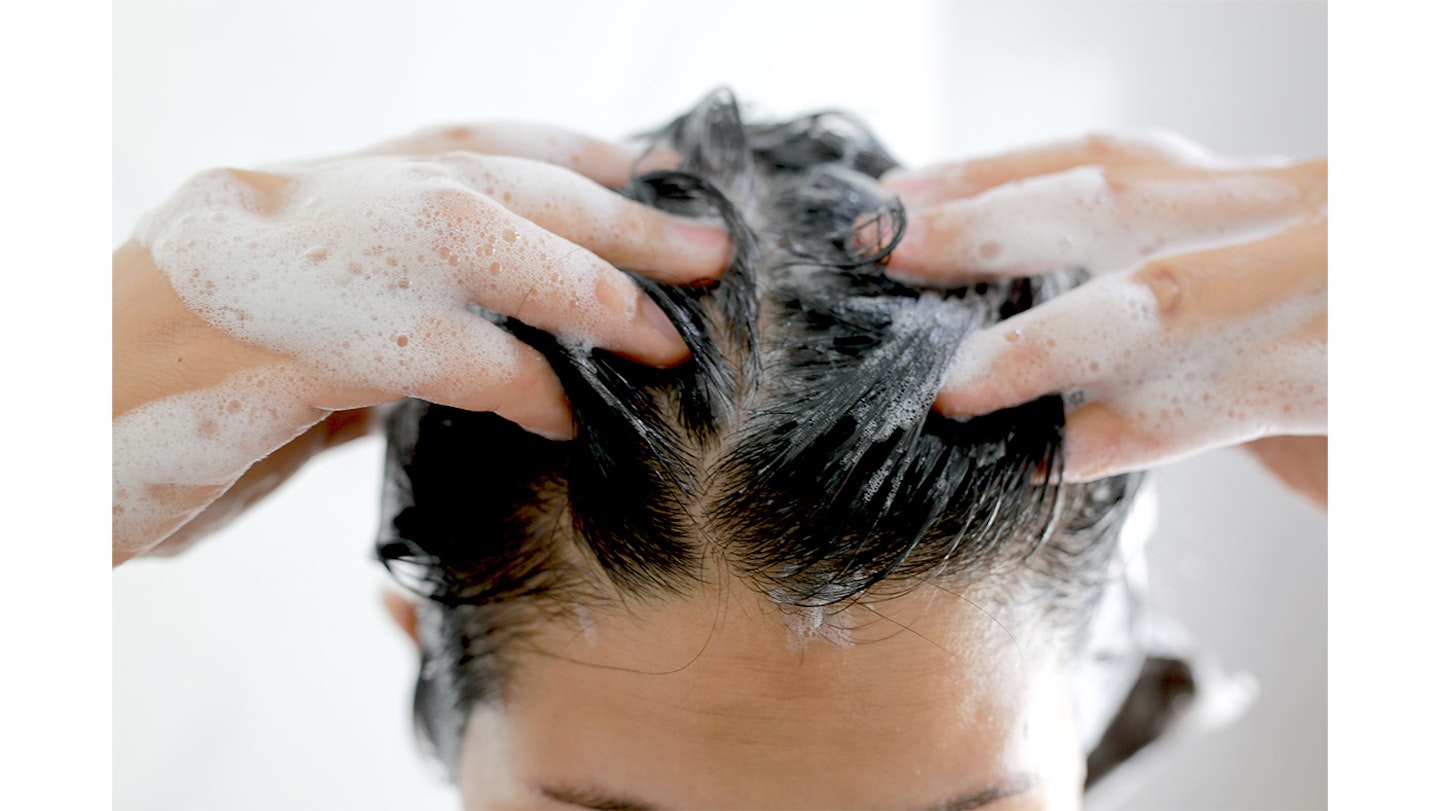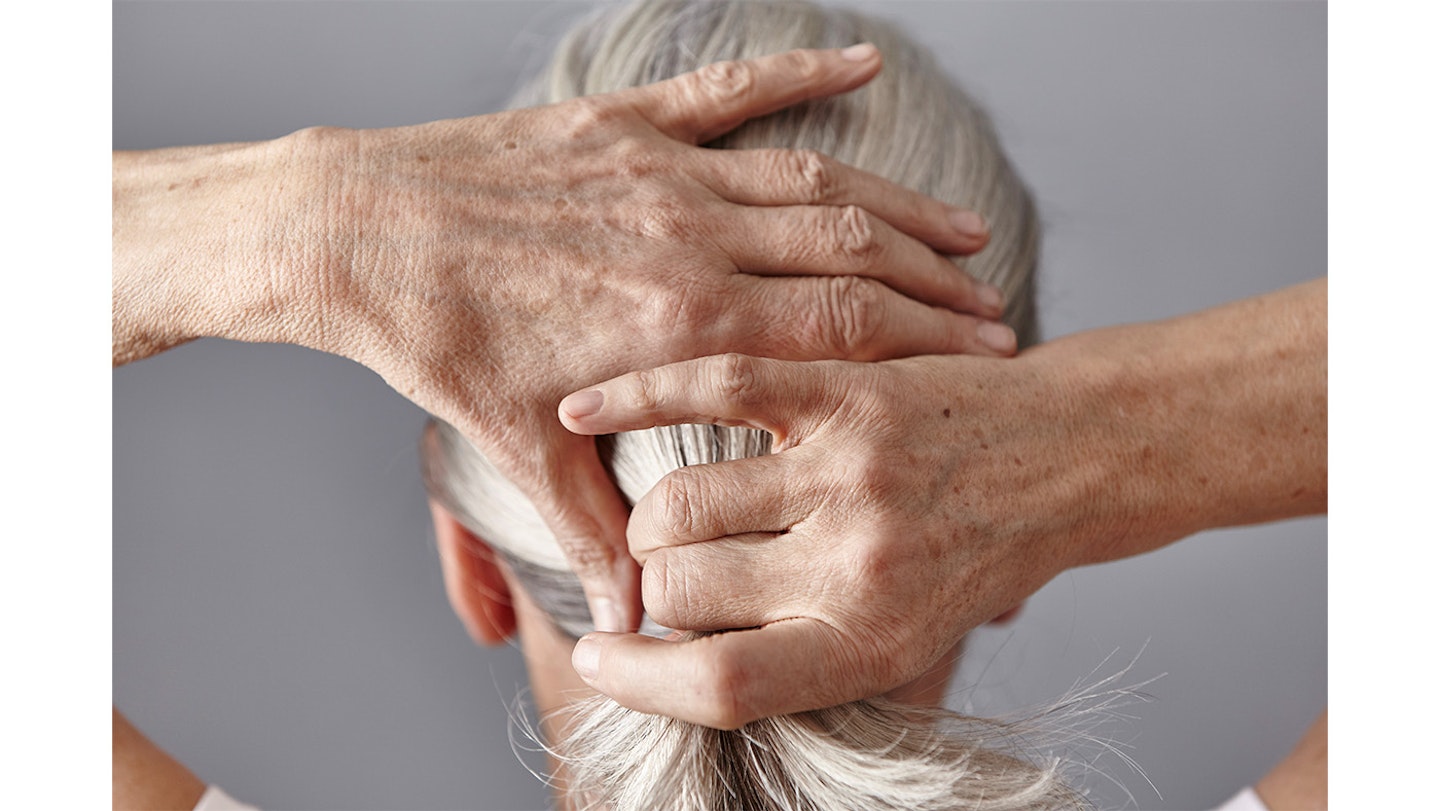Washing your hair can feel like a real chore, and we all have our own unique hair care routines.
I have long, fine hair but I have a hell of a LOT of it so it can feel quite thick and heavy and take ages to blow dry! Personally, I find washing daily is too much for me as it tends to leave my hair feeling dry, and I end up having to use a shampoo for damaged hair. However, if I leave my hair too long between washes it can look greasy at the roots, causing my head to itch and this often leaves me with a dry scalp.
While some people like to wash their hair every morning, others prefer to leave it for as long as possible. But how often should you wash your hair according to the experts? How often should different types of hair be washed? And can it damage your hair to be washed too much or not at all?
We caught up with haircare expert Nicole Petty, Brand Director at Milk + Blush to find out how often you should wash your hair depending on your hair type, the hair washing technique you should use and what can happen if you over wash or under wash.
Should I wash my hair everyday?
The simple response is likely no. Although haircare experts have differing opinions on the matter, the majority agree that daily hair washing is unnecessary for most individuals. In fact, especially for those with tightly curled hair, washing too often can strip moisture from the hair, leading to dryness, damage, split ends, and breakage over time.
Determining how frequently you should wash your hair each week isn't straightforward because it depends on several factors, including your hair type, the amount of stylisting products you use, yout environment and how oily your hair is. Generally, fine hair tends to become oily more quickly, which means it requires more frequent washing. However, thicker and coarser hair can often remain unwashed for longer periods of time. The ideal washing frequency is influenced by various elements, particularly your specific hair type. For instance, finer hair is typically more susceptible to damage and drying, while thicker hair is less so.
How often should you wash fine hair?
"Fine hair needs moisture to shield it from breakage since it tends to be more delicate, so using oils can work as a protective layer that reduces the risk of damage," says Nicole.
"And if you’re naturally more prone to greasier hair, this could actually be a sign that your scalp is dry and may be overproducing oils to try to balance this out (much like skin does). Though it might seem counterintuitive, reducing the amount you wash your hair and using scalp oils can help to remedy this."
Nicole suggests training your hair to require a wash every other day (3-4 times a week). To start off with Nicole suggests, "swapping your normal shampoo to a dry shampoo to absorb excess oil and increase the longevity of time between washes." When you start introducing a regular shampoo make sure it doesn't contain any overly stripping ingredients such as sulfates, parabens, and alcohol. Opt for lightweight and deep cleansing shampoos that rid the scalp of dirt and look for thickening ingredients such as keratin and panthenol (a B5 vitamin).
If you suffer with scalp or hair thinning issues it's worth considering using a sulphate-free shampoo or an organic shampoo to combat hair loss.
How often should combination hair be washed?
Combination hair is caused when the sebum (natural oil produced from the scalp) is not able to move all the way down the hair from the root to the ends. This often leads to an oily scalp with the ends of the hair appearing dry and brittle. Combination hair tends to be thicker than fine hair, and appears fuller and is more resistant to breaking.
"If this is you, avoid washing your hair more than every 2-3 days," advises Nicole. "You’ll need to opt for products that separate the hair’s different needs – treating oily scalps with a cleansing shampoo without bringing it down to the ends and a moisturising conditioner to re-hydrate the ends."
If you are concerned about your hair looking a little greasy in between washes, that’s nothing a little dry shampoo can’t temporarily fix.
How often should you wash curly hair?

There are many different types of curly hair and it's more prone to dry ends as its natural oils often can't reach the end of the strands, requiring more conditioning, moisturising and curly hair products than other hair types to keep it healthy.
"Avoid over-washing curly hair and limit it to once a week," says Nicole. "Use sulphate and silicone-free shampoo that nourishes curls and cleanses the hair without ridding it of moisture. Ingredients like argan oil, shea butter and coconut oil are best."
Nicole suggests a good tip for keeping curly hair refreshed without drying it out. "Instead of shampooing, in between washes, just condition your hair every time you shower to keep it feeling soft, shiny and tangle-free."
Another great tip is to use the curly girl method, which involves 3 simple steps - cleansing, conditioning, and styling – which will ensure your curls are maintained, nourished and enhanced.
Avoid using any shampoos or conditioners with sulphates and silicones, as they're too harsh on delicate curly locks.
How often should coily hair be washed?
Coily hair, often referred to as type 4 hair, is characterised by tight, spring-like curls or zigzag patterns that can range from fine and thin to wiry and coarse. It tends to shrink significantly when dry and is prone to dehydration, requiring regular moisturising to maintain its health and elasticity. This hair type is naturally voluminous and textured but can be fragile and susceptible to breakage if not handled carefully.
As it's prone to breakage, coily hair should be treated with care as it has a high porosity that can easily absorb moisture but can't retain it for long, resulting in breakage, frizz or dryness.
Nicole suggest thats "those with coily hair should co-wash their hair 2-3 times a week, using a conditioner to cleanse and hydrate their hair and scalp, rather than traditional shampoo. Wash your hair with shampoo once every 1-2 weeks."
"For this hair type, repair or bond maintenance shampoos, free of silicones and sulphates, are great for cleansing your hair without drying it out. Conditioners containing oils or butter are fantastic for moisturising your hair due to their moisture-sealing properties, which will help keep hair softer for longer."
How often should medium thick hair be washed?
Medium-thick hair is defined by its balance between fine and coarse textures; it is neither too thin nor overly dense. This hair type generally has a good amount of volume and body, allowing for versatile styling while maintaining a healthy resilience to damage.
For those with medium-thick hair, washing every two to three days is usually sufficient to keep the hair clean without stripping it of essential natural oils. This will help maintain optimal moisture levels while also ensuring the hair remains shiny and manageable.
However, factors such as scalp oiliness, lifestyle, and product use can also influence this and adjustments should be made to best suit individual needs.
How often should thick hair be washed?
Thick hair tends to have a high density of strands, giving it a voluminous and full-bodied appearance. This hair type which can vary from straight to curly, typically requires special care to maintain its health and manageability. Generally, washing thick hair every three to four days is enough because it doesn't become greasy as quickly as thinner hair, and less frequent washing helps retain natural oils that keep it moisturised.
Opt for shampoos and conditioners labelled "moisturising" or "hydrating," and seek out ingredients like shea butter, argan oil, and coconut oil to add moisture and smoothness. Avoid harsh sulphates like sodium lauryl sulphate, which can strip the hair of these beneficial oils, and steer clear of alcohols such as isopropyl alcohol, which can cause dryness and frizz.
What's the best hair washing technique?
Haircare expert Nicole Petty shares her tried and tested hair washing routine:

-
Start by rinsing your hair thoroughly with lukewarm water around 38 degrees celsius or colder. This will seal the hair cuticle to increase shine and to lock in moisture to minimize dandruff. Whilst hot water can be beneficial for helping products absorb deep into the hair, it can also strip the hair of its natural oils, causing dryness and excessive oil production to compensate for a dehydrated scalp. Not only is this good for ensuring the shampoo lathers more effectively, but it opens hair cuticles fully and allows the shampoo to penetrate deeper to remove dirt, absorb oil and moisturise hair fully.
-
Next, apply a hazelnut-sized amount of shampoo mixed with water directly to your roots and gently massage it into the scalp. Use your fingertips from the top and work around the back of your head, ears and nape of the neck in a smooth motion (no circles!). There are many brilliant refillable shampoos as well as shampoo for menopausal hair that we recommend.
Getting deep into the scalp can help clarify your root area and work to exfoliate the scalp, removing dead skin and built-up grease.
However, you want to avoid scrubbing your scalp too intensely. Harsh scrubbing, especially when using fingernails, can not only risk damaging the hair follicles by pulling on wet hair but may also inflame your scalp, leading to flaking, soreness and even hair loss. A scalp massager is great for stimulating your hair follicles and it's not too harsh on your skin.
And remember, you don’t want to scrub the strands as they are prone to breakage, so stick to the roots alone (the ends will be cleansed when you rinse the shampoo off.) -
Rinse your hair thoroughly using lukewarm water for at least three minutes to ensure it is free of any suds. While rinse and repeat aren't 100 percent necessary, another shampoo might be on the cards if you’re prone to oily or greasy hair or haven’t washed it in a while. Squeeze your hair and look for the water to run clear before proceeding to the next step.
-
Once hair is rinsed, apply a small hazelnut-sized blob of conditioner from the mid-lengths to the ends of your hair using your fingers. Do not apply to your roots, as it can cause them to lose volume.
-
Finish by rinsing your hair with cold water to help seal and smooth the cuticle and dry with a microfibre towel.
Is there a maximum number of days you shouldn't go without washing?
"It depends on your hair type as to how long you can go without washing your hair," says Nicole. "Fine or combination hair types fare better from more regular washes using a cleansing shampoo to rid the hair of oil, while curly or coily hair, depending on the individual, can go 1-2 weeks without being washed."
Each individual should assess the condition of their hair between washes, as signs that it needs a wash include oiliness, a flaking scalp or even itching.
What can happen if we over wash or don't wash enough?
"Overwashing your hair can result in your hair and your scalp becoming dry," says Nicole. "While making your hair look lacklustre, it will be more prone to breakage, harder to brush and colour-treated hair will fade more easily. Plus, washing your hair too much rids the scalp of oils as the scalp overcompensates by replacing it with even more oil. Giving your hair a treatment with olive oil (like a mask) may help replenish some moisture."
Not washing your hair enough could have some similar effects, such as skin irritation/itching due to excess dirt resulting in dandruff and it becoming excessively oily and greasy, which neither looks nor smells very nice.
How can you start to extend the time between washes?

Nicole suggests several things you can do to train your hair and extend the time between washes, such as:
-
Opt for a sulphate-free shampoo that cleans your hair and scalp while still retaining moisture. These are great for cutting through oil and dirt and removing buildup, meaning that when you do wash your hair, it will be more effective.
-
Co-wash your hair using a conditioner or simply rinse with water if you have a buildup of sweat after a workout, to clean the scalp and strip it off dirt and oils.
-
Use cooler water when you do wash your hair to preserve the hair’s natural oils and seal the cuticle.
-
Spritz dry shampoo onto your roots to keep the hair looking clean and free of oil or grease.
-
Experiment with updos that require your hair to be a little bit greasier to look good, such as a slicked-back bun.
-
Avoid touching it when possible.
And remember, it's a marathon, not a sprint. Training your hair to go longer between each hair wash may take two to three months before it adjusts to your new routine.
How often should you wash men's hair?
Men’s hair washing frequency often differs from women’s due to differences in hair length, styling practices, and scalp oil production. Generally, men with shorter hair may find that washing their hair every two to three days is adequate, as shorter hair tends to accumulate less oil and product buildup and is easier to manage.
Men with longer hair, on the other hand, might opt for washing every three to four days to maintain moisture and prevent dryness. The frequent use of styling products or regular sweating, especially for those who exercise regularly, may necessitate more frequent washing to keep the scalp clean and comfortable.
It’s important for men to choose a gentle, sulphate-free shampoo that suits their hair type, avoiding harsh sulphates that can strip the scalp of natural oils while opting for conditioners with nourishing ingredients like aloe vera or coconut oil to maintain healthy hair and scalp.
How often should you wash children's hair?
The frequency you should wash children's hair largely depends on their age, hair type, and activity level. Younger children, especially infants, typically need their hair washed only once or twice a week since their scalps produce less oil than adults.
For toddlers and older children with finer hair that can become greasy more quickly, washing every two to three days may be appropriate. Children with textured or curly hair can often go longer between washes, as their hair benefits from retaining natural oils to maintain moisture and minimise dryness.
If a child is highly active, playing sports, or sweating often, more frequent washes might be necessary to keep their hair clean and comfortable. Whatever the age it's essential to use gentle, child-friendly hair products that won't irritate or dry out their delicate scalps.
Nicole Petty is a haircare guru and brand director at Milk & Blush, who specialise in manufacturing and supplying premium-quality hair extensions to hair lovers around the world. Each of their hair extensions and hair pieces are expertly made to seamlessly blend with your hair, addressing thinning, adding volume, or increasing length.
Nicole has regularly contributed her expert hair knowledge and tips to a number of newspapers, magazines and websites including The New York Times, Grazia, The Express and The Mirror.
Lorna White is a digital writer at Yours.co.uk and MotherandBaby.co.uk. She was previously a writer at Yours Magazine writing features and news stories before joining the digital team. She loves the great British countryside and likes to spend her spare time out and about in her home of Nottinghamshire walking her dog, Pippin.
